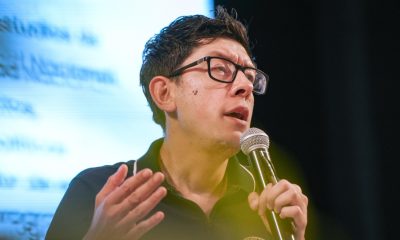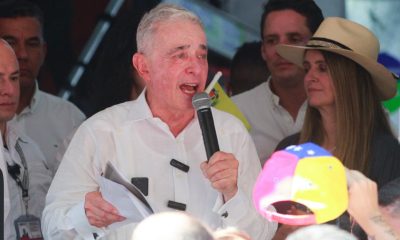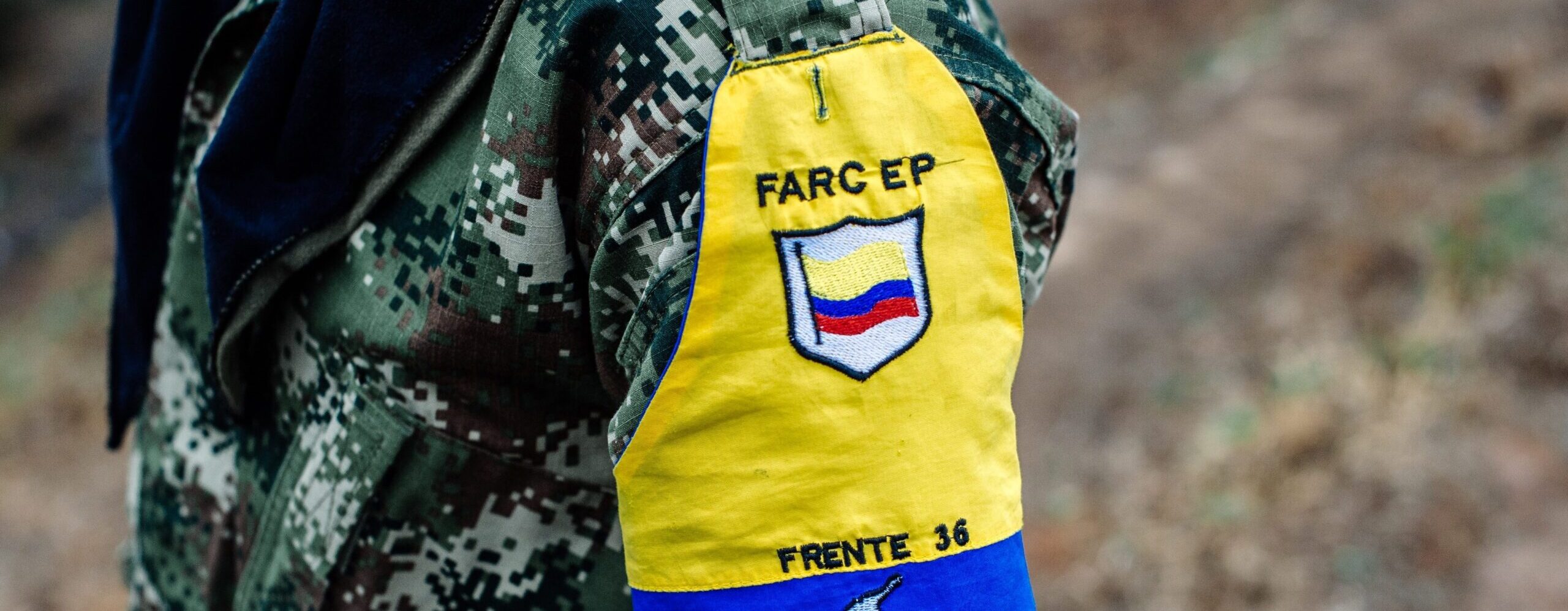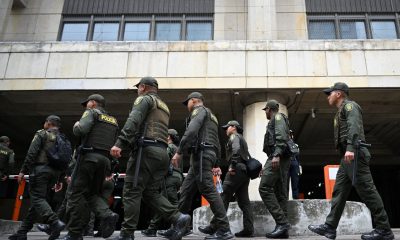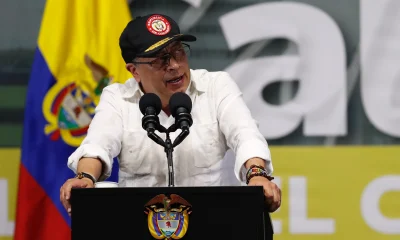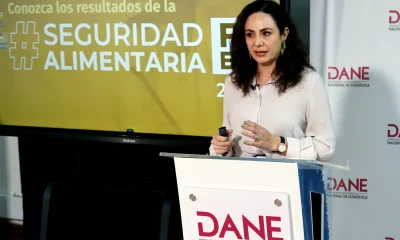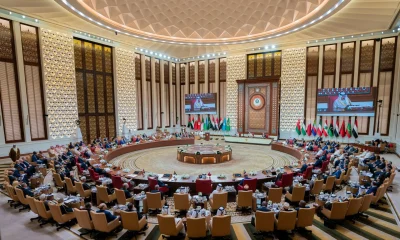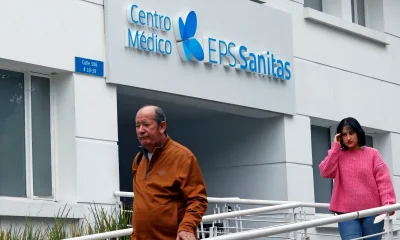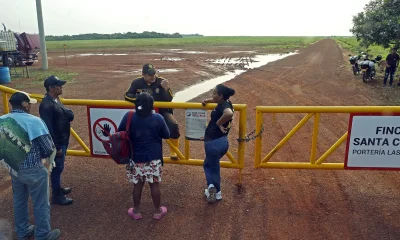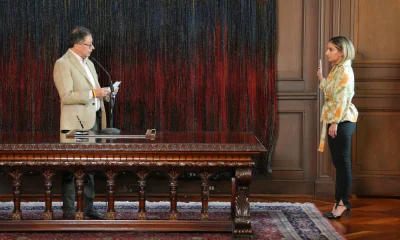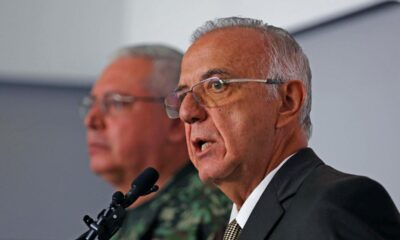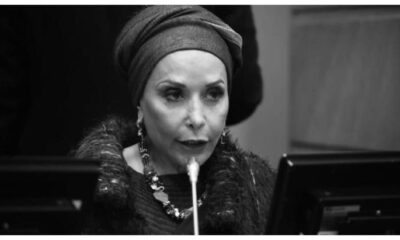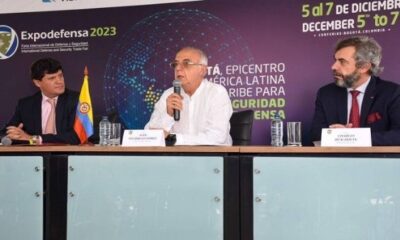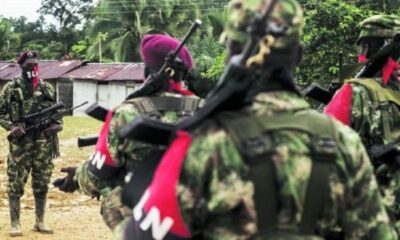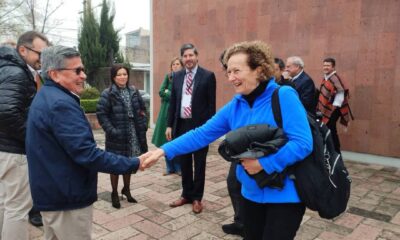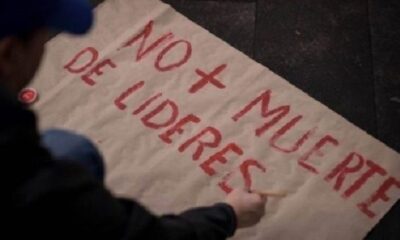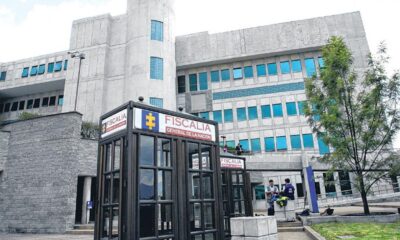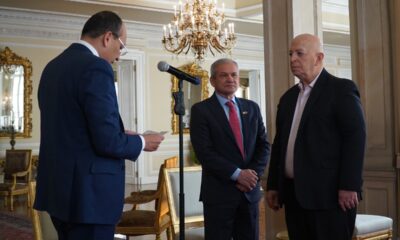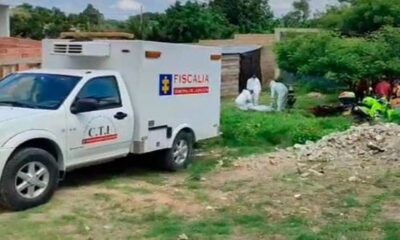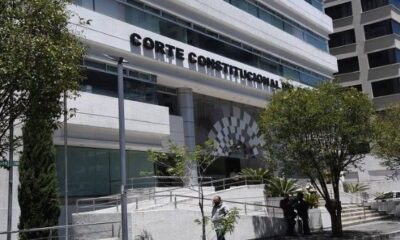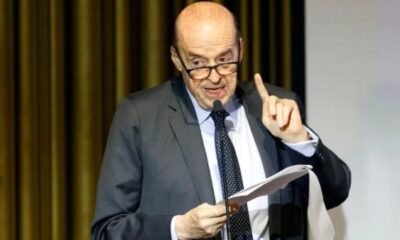International
Javier Acosta dies after euthanasia in Colombia, sparking renewed euthanasia debate
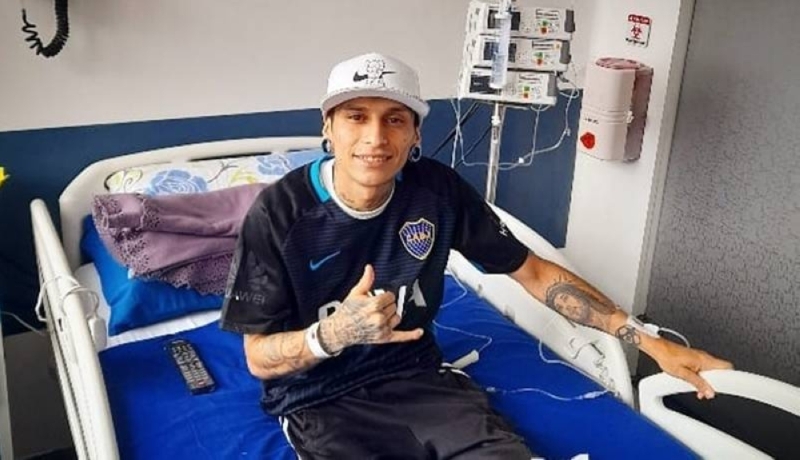
On Friday noon, Javier Acosta, 36, passed away after receiving euthanasia at a university hospital in San Ignacio, Bogotá, Colombia. He had been diagnosed with osteomyelitis and blood cancer.
His case shocked the entire nation and those who followed his story on social media after he decided to end his life. The decision came as medications ceased to be effective and doctors ruled out the possibility of walking again or improving his condition.
“I’ve been hospitalized for a month; I discovered a severe bacteria that I’ve been treating for about six years, called osteomyelitis. This bacteria has left me in a bad state,” Javier explained on August 21, during a live broadcast on his Facebook profile, Javier Acosta PK. In the video, he did not explicitly mention his decision to undergo euthanasia but hinted at it. “After crying so much and talking with God, I have no tears left. It’s hard, it’s sad,” he said while describing his suffering.
“I’ve been fighting to save myself, my body, my skin, my bones. Unfortunately, the bacteria came back… The bacteria is like the iPhone, 13, 14, 15, pro, pro max. This bacteria is in re pro max. I’m on three antibiotics,” he said, showing the intravenous antibiotics in his video and expressing that despite the three strong medications, he still had fevers and poor culture results. “I don’t have much hope of continuing to live; it sounds harsh, and I’m recounting it very coldly, but it’s the truth. Life turns out this way.”
Colombian media reported that Javier Acosta died at 12:47 PM on August 30, after being induced into a coma and then undergoing euthanasia. Javier was a fan of the Millonarios football team, and his wheelchair condition was a result of an accident related to his support for the team. A group of supporters gathered in front of San Ignacio Hospital at noon on Friday to show their support for Javier and his family.
Javier Acosta’s case has reignited the euthanasia debate. Although euthanasia is legal in Colombia, many tried to persuade him to reconsider his decision through social media.
On August 28, Javier received a call from Radamel Falcao García, who learned about his case and offered words of encouragement. “Thank you, Tiger, for praying for me, for calling me, and for saying so many beautiful things about my life… you know the promise, first goal dedicated to Javi PK…” Javier wrote in a Facebook post where he shared part of the call.
According to Infobae, in Colombia, euthanasia is permitted in specific cases of terminal illness where the patient suffers from unbearable physical or psychological pain that cannot be alleviated by other means. Javier had said that even morphine did not relieve his pain.
International
Trump urges Putin to reach peace deal
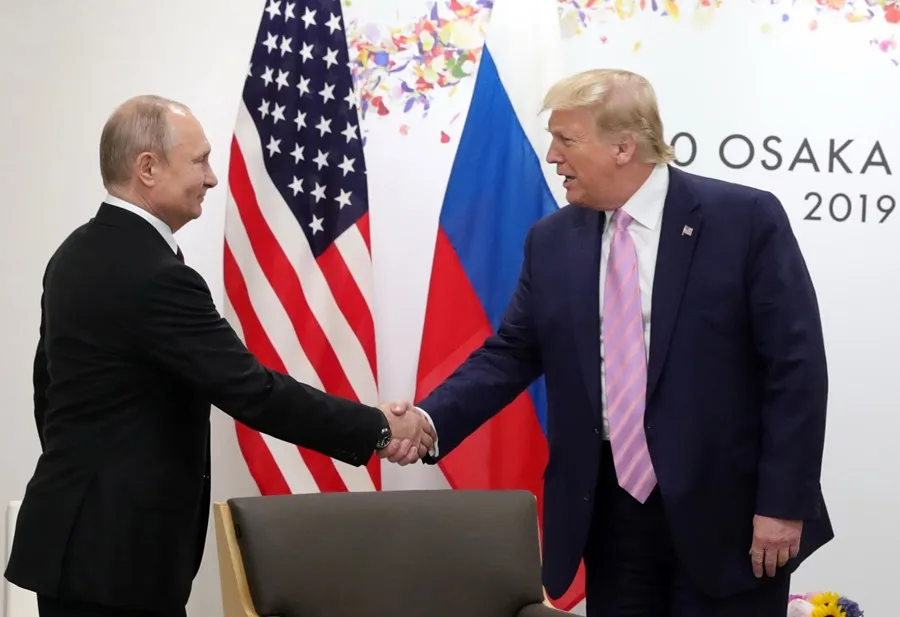
On Monday, U.S. President Donald Trump reiterated his desire for Russian President Vladimir Putin to “reach a deal” to end the war in Ukraine, while also reaffirming his willingness to impose sanctions on Russia.
“I want to see him reach an agreement to prevent Russian, Ukrainian, and other people from dying,” Trump stated during a press conference in the Oval Office at the White House.
“I think he will. I don’t want to have to impose secondary tariffs on Russian oil,” the Republican leader added, recalling that he had already taken similar measures against Venezuela by sanctioning buyers of the South American country’s crude oil.
Trump also reiterated his frustration over Ukraine’s resistance to an agreement that would allow the United States to exploit natural resources in the country—a condition he set in negotiations to end the war.
International
Deportation flight lands in Venezuela; government denies criminal gang links

A flight carrying 175 Venezuelan migrants deported from the United States arrived in Caracas on Sunday. This marks the third group to return since repatriation flights resumed a week ago, and among them is an alleged member of a criminal organization, according to Venezuelan authorities.
Unlike previous flights operated by the Venezuelan state airline Conviasa, this time, an aircraft from the U.S. airline Eastern landed at Maiquetía Airport, on the outskirts of Caracas, shortly after 2:00 p.m. with the deportees.
Interior Minister Diosdado Cabello, who welcomed the returnees at the airport, stated that the 175 repatriated individuals were coming back “after being subjected, like all Venezuelans, to persecution” and dismissed claims that they belonged to the criminal organization El Tren de Aragua.
However, Cabello confirmed that “for the first time in these flights we have been carrying out, someone of significance wanted by Venezuelan justice has arrived, and he is not from El Tren de Aragua.” Instead, he belongs to a gang operating in the state of Trujillo. The minister did not disclose the individual’s identity or provide details on where he would be taken.
International
Son of journalist José Rubén Zamora condemns father’s return to prison as “illegal”
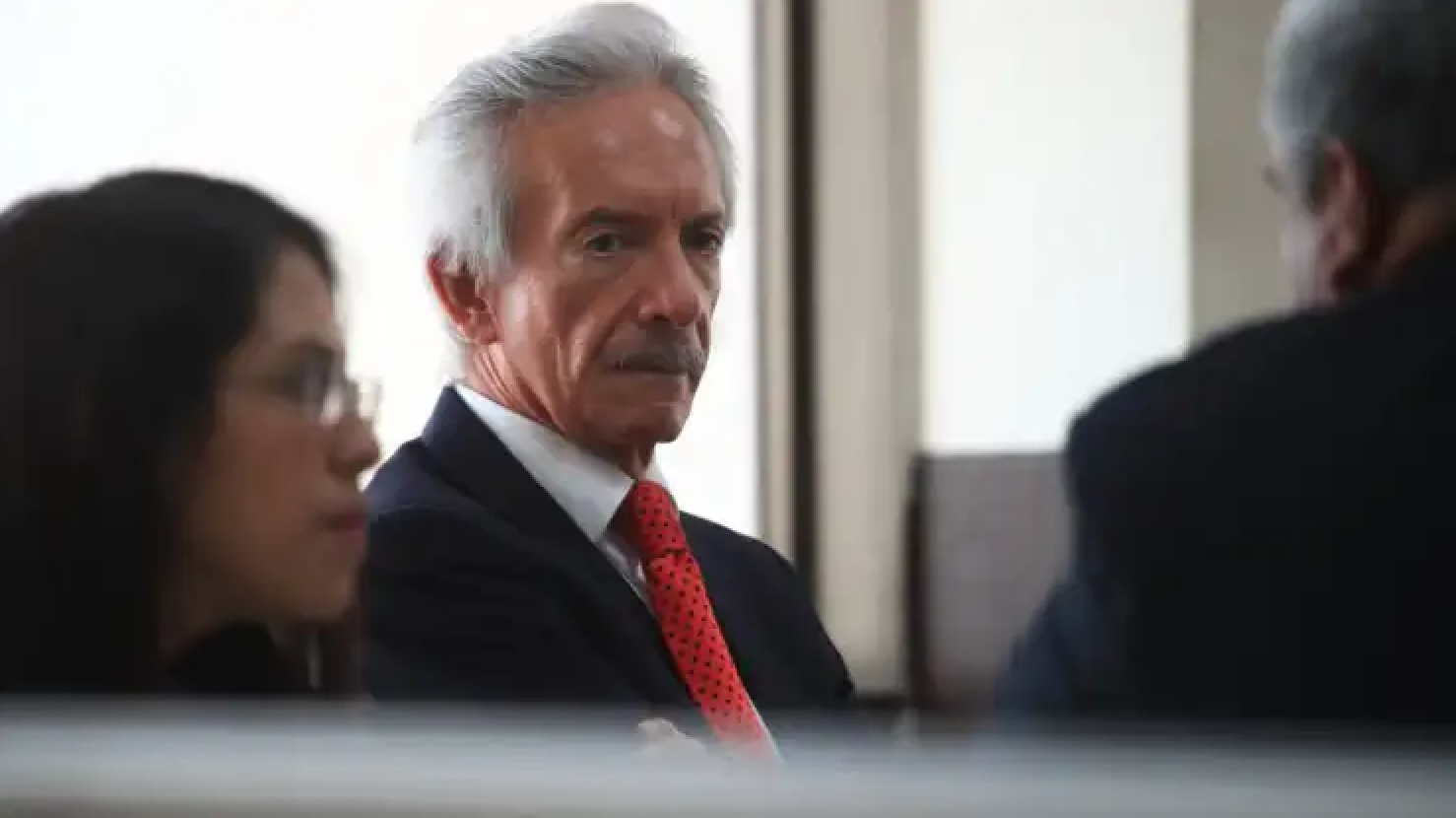
The son of renowned journalist José Rubén Zamora Marroquín, José Carlos Zamora, has denounced as “illegal” the court order that sent his father back to a Guatemalan prison on March 3, after already spending 819 days behind barsover a highly irregular money laundering case.
“My father’s return to prison was based on an arbitrary and illegal ruling. It is also alarming that the judge who had granted him house arrest received threats,” José Carlos Zamora told EFE in an interview on Saturday.
The 67-year-old journalist was sent back to prison inside the Mariscal Zavala military barracks on March 3, when Judge Erick García upheld a Court of Appeals ruling that overturned the house arrest granted to him in October. Zamora had already spent 819 days in prison over an alleged money laundering case.
His son condemned the situation as “unacceptable”, stating that the judge handling the case “cannot do his job in accordance with the law due to threats against his life.”
-

 Central America5 days ago
Central America5 days agoNicaragua denounces Costa Rica’s position in SICA as aligned with foreign interests
-

 Central America5 days ago
Central America5 days agoNicaragua’s new judicial law consolidates power in Ortega and Murillo’s hands
-
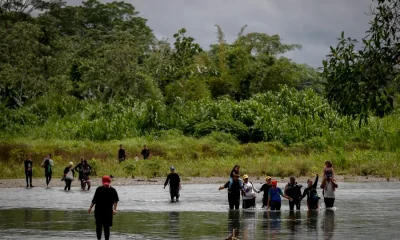
 Central America5 days ago
Central America5 days agoPanama’s president declares Darién gap ‘closed’ amid sharp drop in migrant flow
-

 International3 days ago
International3 days agoSon of journalist José Rubén Zamora condemns father’s return to prison as “illegal”
-

 International5 days ago
International5 days agoMarco Rubio warns Venezuela against military action against Guyana
-

 International3 days ago
International3 days agoMiyazaki’s style goes viral with AI but at what cost?
-

 Central America2 days ago
Central America2 days agoPanama police clarifies that Interpol alert for Martinelli is still pending
-

 International2 days ago
International2 days agoDeportation flight lands in Venezuela; government denies criminal gang links
-

 Central America16 hours ago
Central America16 hours agoU.S. Homeland Security Secretary urges Mexico to strengthen Guatemala border
-

 International16 hours ago
International16 hours agoTrump urges Putin to reach peace deal
-

 Central America16 hours ago
Central America16 hours agoPanama grants Martinelli 72-hour extension to travel to Nicaragua
-
Central America4 days ago
Nicaragua revokes legal status of 10 more NGOs, bringing total to over 5,600


















